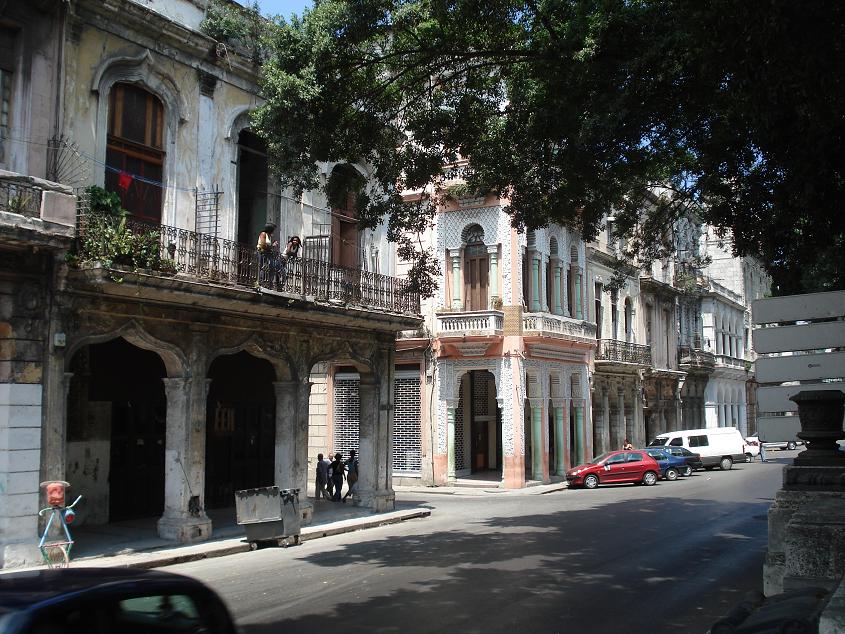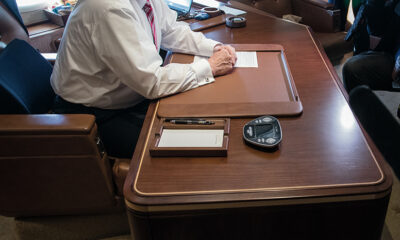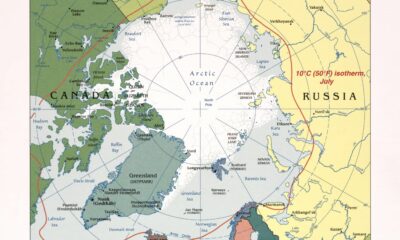Executive
U.S. Concessions to Cuba Weaken Our Own National Security

While the United States has seen presidents come and go from the White House, the communist regime on the island of Cuba has remained active in the clutches of dictators and narco-states, more interested in power than the well-being of their people. The relationship between the U.S. and Cuba, however, ebbs and flows with changes, big and small, sometimes apocalyptic. But even the small, seemingly innocuous changes can have the most tempestuous and dangerous outcomes.
Rewarding the current regime in Cuba
Just this week, we saw gut-wrenching images of Russian warships on the Cuban coastline, in an all too real flashback of the Cuban Missile Crisis when the world stood still, teetering on the brink of a nuclear disaster.
While the Russian warships have departed, there is still a clear and present danger in the Cuban/Russian alliance. Instead of chastising Cuba for kowtowing to one of our greatest nemeses, the most recent change in the U.S.-Cuban relationship seems to reward the Cuban regime. It came just a few weeks ago when the State Department removed Cuba from its short list of countries not cooperating fully against terrorism.
While it is a different list with a separate set of criteria from the State Sponsors of Terrorism list, on which Cuba remains, the decision by the Biden administration is a misguided gesture. By removing Cuba from the list of countries not cooperating fully against terrorism, the United States could be setting the groundwork to remove Cuba from the list of State Sponsors of Terrorism, both of which compromise our national and international security and send a message that the U.S. will conduct business as usual with states that shred the human rights of its citizens and conspire against our national security.
Cuba fields spies and hosts dangerous criminals
Cuba’s communist regime is tied closely to similarly minded countries also known for violently persecuting and oppressing their populations. Their collective goal is to leverage their alliances to destabilize the United States and its democratic allies. Cuba’s regime has constantly tried to undermine American security, having famously built up a spy network to infiltrate U.S. agencies and steal sensitive information. (Recent examples are Ana Belen Montes and Victor Manuel Rocha.)
Cuba also has become a haven for illegal activity for international actors, harboring dangerous criminals and forming partnerships with guerrilla and narco-terrorist organizations. The Cuban regime’s influence and power have even extended to South America and Africa where it has supported the violent repression of populations, human trafficking, drug trafficking, and other illegal activity for over four decades.
The removal of Cuba from the list of countries not fully cooperating against terrorism is dangerous, poorly conceived, could be perceived as hypocritical, and makes no sense when the Cuban regime is sacrificing the livelihood of its own people for its self-serving political gain. For example, the Cuban regime is participating in Russia’s invasion of Ukraine by allowing the Kremlin to bolster their army numbers invading that country with Cuban citizens. Tied both economically and politically, the Cuban-Russian alliance has been working closely for decades with Russia, recently signing a deal to forgive $29 billion of Cuba’s Soviet-era debt.
Human trafficking
While Cuba’s willingness to use its people as disposable resources for Russia’s attack on Ukraine is new, its culpability in international human trafficking is not. For decades Cuba has been profiting off the backs of its physicians, shipping them to any country willing to provide the regime with cash or resources. Governments and international human rights advocates have come out to expose and condemn this trans-continental operation. The exploitation of Cuban doctors and nurses even occurs in neighboring U.S.-allied countries such as Mexico, exemplifying the regime’s willingness to keep committing blatant and clear human rights abuses to line its own pockets (a violation of the USMCA free trade agreement), while turning a blind eye to their burgeoning economic crisis on the island.
All these actions have sparked a public outcry in Cuba. Amid repeated blackouts and a worsening economic outlook, thousands of starving Cubans have taken to the streets to demand an end to the regime and the restoration of their freedom. But instead of listening to the pleas of their people, Cuban president Miguel Diaz-Canel shifted blame to the United States and the “capitalist” media for fueling the protests.
Why concessions?
With this slap in the face to the United States, it is hard to believe how the State Department could feel moved to extend a meaningful concession that most certainly would be interpreted as an olive branch to the brutal dictatorship. The Cuban government continues to use the United States as a scapegoat to escape criticism for its policies of mass dehumanization and starvation of its citizens, avoiding any national or international accountability, all the while the U.S. is playing into the regime’s dirty hands.
This administration must not open the golden door to normalizing our diplomatic relationship with Cuba. They are bad actors acting dangerously, who have engaged in actions and alliances with inhumane, violent, and deadly outcomes. Keeping Cuba listed as a country that does not fully cooperate against terrorism is a necessary step to hold Cuba’s oppressive regime accountable. Starting to treat this wolf in sheep’s clothing as an operating democracy threatens U.S. and international security.
Cubans on the island are suffering at the hands of a dangerous totalitarian and oppressive government in bed with the United States’ most heinous terrorist enemies. As such, the regime cannot go unchecked. If the United States wishes to maintain its symbol and credibility as a beacon of freedom and democracy, it must continue to demand freedom and democracy for the Cuban people until the island’s reign of terror is ended once and for all.
This article was originally published by RealClearPolitics and made available via RealClearWire.
Tony Costa, a lifelong human rights advocate and Cuban refugee, is co-founder and president of the Foundation for Human Rights in Cuba. The foundation is a 501(c)3 non-profit organization established in 1992 to promote a nonviolent transition to a democratic Cuba. Costa is also the founder and director of Costa Farms.
-

 Accountability2 days ago
Accountability2 days agoWaste of the Day: Principal Bought Lobster with School Funds
-

 Constitution2 days ago
Constitution2 days agoTrump, Canada, and the Constitutional Problem Beneath the Bridge
-

 Executive1 day ago
Executive1 day agoHow Relaxed COVID-Era Rules Fueled Minnesota’s Biggest Scam
-

 Civilization1 day ago
Civilization1 day agoThe End of Purple States and Competitive Districts
-

 Civilization5 days ago
Civilization5 days agoThe devil is in the details
-

 Civilization4 days ago
Civilization4 days agoThe Conundrum of President Donald J. Trump
-

 Executive4 days ago
Executive4 days agoTwo New Books Bash Covid Failures
-

 Executive14 hours ago
Executive14 hours agoWaste of the Day: Can You Hear Me Now?













